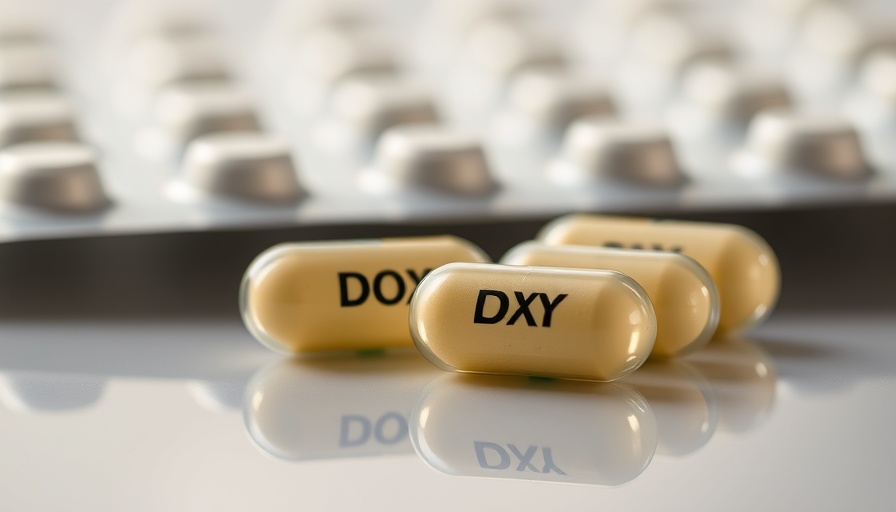
Revolutionary Findings: Doxycycline as a PrEP Option for STI Prevention
In a groundbreaking study, researchers have discovered that a regimen of doxycycline taken as pre-exposure prophylaxis (PrEP) significantly reduces the risk of sexually transmitted infections (STIs) among sex workers. This innovative approach emerges as a vital strategy in improving sexual health, particularly for vulnerable populations who face increased exposure to STIs. Doxycycline, traditionally used as an antibiotic, is now being recognized for its potential role in disease prevention beyond its conventional applications.
Understanding the Impact: Why This Study Matters
The implications of this research reach far beyond theoretical frameworks. With STIs such as chlamydia, gonorrhea, and syphilis on the rise globally, effective prevention strategies are urgently needed. The World Health Organization has emphasized that untreated STIs can lead to severe health consequences, including infertility and increased HIV transmission risk. By providing an easily accessible prophylactic option like doxycycline, we can potentially transform public health responses and empower individuals to take control of their sexual health.
Broader Context: The Epidemic of STIs
The rise of STIs is a pressing public health issue, underscored by the recent surge in reported cases across various demographics. According to statistics from health organizations, there were over 1.5 million cases of chlamydia and nearly 700,000 cases of gonorrhea reported in the United States alone in recent years. Such alarming figures highlight the urgency of developing innovative strategies for prevention and intervention.
Counterarguments: Assessing the Limitations of Doxycycline PrEP
While the findings surrounding doxycycline as a PrEP for STIs are promising, it is essential to consider potential counterarguments. Some public health experts caution against reliance solely on antibiotic therapy for prevention. The overuse of antibiotics can lead to resistance, rendering treatments ineffective. Thus, while doxycycline may be part of a comprehensive approach to STI prevention, it should not replace traditional preventive measures like condom use and routine screenings.
Practical Implementation: How Can Communities Benefit?
For this research to translate into real-world benefits, targeted implementation strategies must be developed. Health care providers can play a pivotal role in educating at-risk populations about the benefits of doxycycline PrEP along with other preventive measures. Community outreach programs can bolster awareness and access, ensuring that those at highest risk receive comprehensive support.
Future Trends: A New Paradigm in Prevention
Looking ahead, the introduction of doxycycline as a preventative measure opens doors to new research avenues and public health policies. As the quest for effective STI prevention continues, we may witness a shift in how sexual health education is framed. Doxycycline PrEP could become part of routine sexual health discussions, fundamentally changing perceptions around proactive health management.
Embracing Change: The Role of Advocacy and Research
The pathway to integrating doxycycline for STI prevention requires collaborative efforts among researchers, healthcare providers, and advocacy groups. Ongoing research is vital to refine protocols, improve methodologies, and ensure that such innovations align with public health goals. The dialogue around sexual health is evolving, and with it comes the responsibility to promote informed choices.
Ultimately, the emergence of doxycycline as a potential STI preventative measure not only reshapes the conversation around sexual health but also emphasizes the need for comprehensive strategies tailored to the needs of diverse populations. Stakeholders in public health must remain vigilant and responsive to developments in this field to safeguard community health.
 Add Row
Add Row  Add
Add 




Write A Comment